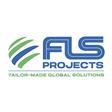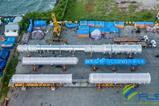According to the US Energy Information Administration (EIA), in 2021 the United States exported about 8.63 million barrels per day (bpd) and imported about 8.47 million bpd of petroleum, making the US a petroleum net exporter for the second year in a row.
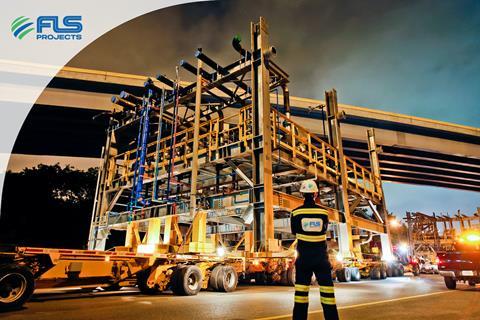
The country also imported some crude oil (6.11 million bpd) and petroleum products in 2021; some of that imported crude was refined in the US for export to other markets. Clearly, while renewable energy sources such as wind power are receiving more and more investment these days, oil and gas remain big business in the US.
The uses of petroleum products extend far beyond the direct consumption of oil and gas as fuel. Petrochemicals are found in textiles, tyres, electronic devices, detergents, fertilisers – and perhaps most evidently to the general public, in plastic packaging.
The International Energy Agency (IEA) anticipates in its World Energy Outlook 2022 that electrification of transport, industry and residential heating could mean that the petrochemicals sector will account for 55 percent of demand for crude oil by 2050, in a Net Zero Emissions scenario.
In its 2018 report entitled The Future of Petrochemicals, the IEA said: “Demand for plastics – the most familiar group of petrochemical products – has outpaced that of all other bulk materials (such as steel, aluminium or cement), and has nearly doubled since 2000.”
There is “massive” demand for plastics nowadays, agrees Jasper Ledeboer, Director of Americas at FLS Projects. Around 70 percent of oil feedstock to the chemicals industry is used to produce plastics, 30 percent of which is for packaging.
Furthermore: “Although substantial increases in recycling and efforts to curb single-use plastics are expected to take place, especially in Europe, Japan and Korea, these efforts will be far outweighed by developing economies sharply increasing their shares of plastic consumption (as well as its disposal),” the IEA says. “The difficulty in finding alternatives to petrochemical products for many applications is another factor underpinning the robust overall demand growth.”
The US holds a prominent position in the low-cost production of petrochemicals thanks to the shale gas revolution. Petrochemicals manufacturing in the country was estimated to be a USD79.8 billion industry in 2022, has been growing at an average annual rate of 5.3 percent since 2017, and is most heavily concentrated in Texas, Louisiana and South Carolina.
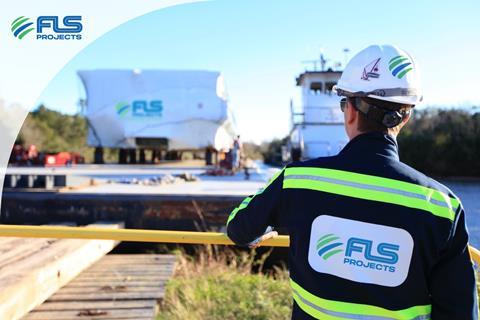
Headquartered in Singapore, FLS opened an office in Houston, Texas in September 2016 to serve the project industry and its fabrication needs in Southeast Asia.
Its work there goes back decades. For instance, in 2015, FLS executed a major project for a petrochemical plant expansion in the greater Houston area. 200,000 freight tons of furnace modules and equipment were shipped over the course of eight months.
The scope of work included project management at the fabricator in Thailand, shink wrapping of deck cargo, just-in-time delivery of all equipment to the port of loading, ocean freight arrangements for 13 full charter vessels, discharge supervision, port handling, extended storage at an offsite facility, barging and heavy haul, as well as the important coordination work regarding permits, escorts and communication with the county’s community for the final delivery to site during night-time hours.
Connections
Of course, anything oversize requires special attention and experienced handling. Familiarity with the components and modules involved in petrochemical projects; knowledge of their requirements with regard to protection from weather, spray and shocks; and expertise in the various permits and escorts needed for their transport – this is all important, but FLS’ success is based on something more fundamental.
“We know our clients,” Ledeboer says, simply. “We are very close to the fabrication sector in Asia – and fabrication is where our job starts. We are very hands-on: we are right there at the start of the process giving recommendations about dimensions, meeting the engineers and so on. This is a unique approach that we think sets us apart from our competitors.”
There are other facets, too, Ledeboer explains. “As forwarders in the project industry over the last two or three years, we have seen that having established relationships is more valuable these days than in the past. You have to guide clients to avoid problems, and work proactively on solutions.”
One recent example was a charter vessel that was scheduled to discharge its cargo at Stockton, California. The high degree of congestion there would have resulted in an expensive delay of 14 to 20 days. In close coordination with all parties to find a workable solution that also met the on-carriage needs, FLS managed to secure a priority berth in San Diego instead and saved its client hundreds of thousands of dollars by avoiding delays to berth the vessel and being able to start right away with the discharge operation.
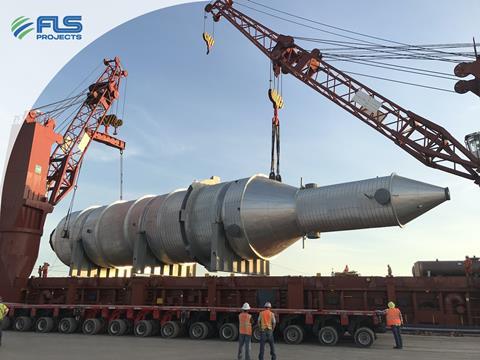
“On another part charter during 2022, we managed to bypass Chinese ports to avoid major delays due to ongoing port congestion in the area at that time,” Ledeboer goes on. “The transit time from the port of loading in Thailand to the US Gulf therefore turned out extremely competitive and allowed us to deliver the equipment to the erection site just in time.”
Other challenges include the availability of trucking equipment and drivers in the US. These constraints are a direct consequence of Covid, with many staff having left the industry during the pandemic and supply chains struggling to keep up with demand.
But at FLS: “We’re not just an ordinary forwarder doing project work on an ad hoc basis. We have a talented team of specialist willing to go the extra mile for our clients and partners – especially when times aren’t easy and special attention is needed. Our very good market knowledge and excellent relationships with vendors and carriers help us to offer competitive, tailor-made solutions to our clients while at the same time, through team effort, being extremely flexible in handling complex situations for them,” Ledeboer says.
This approach will serve FLS well in supporting the sorts of projects that the IEA foresees as becoming ever more important for the energy transition and for managing humanity’s likely continued dependence on petrochemical products such as plastics.
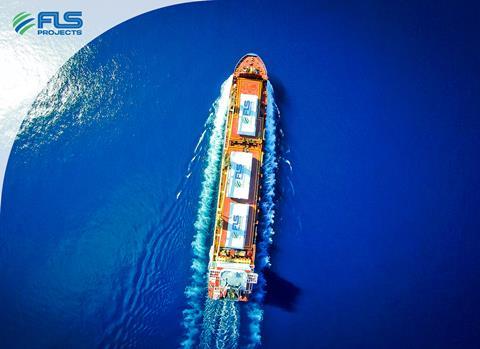
Sustainability challenges
The environmental impact of the petroleum and petrochemicals industries has garnered increasing levels of attention in recent years. Opposition to oil exploration and to single-use plastics, for instance, has been vocal and has driven some degree of change.
Indeed: “Despite the substantial benefits they provide – including a growing number of applications in various cutting-edge, clean technologies critical to a sustainable energy system – the production, use and disposal of petrochemical-derived products poses a variety of sustainability challenges that urgently need to be addressed,” the IEA report points out.
It proposes a ‘Clean Technology Scenario’ that would see carbon capture, utilisation and storage (CCUS), coal-to-gas feedstock shifts, and energy efficiency as key methods to reduce CO2 emissions, air pollution and water demand, while ramping up plastic recycling would more than halve cumulative ocean-bound plastic waste by 2050 (compared to the IEA ‘Reference Technology Scenario’) even as global demand for plastics rises.
Carbon capture is already well established in the US, and the technology is gaining ground with new CCUS projects as well as retrofits to coal power plants. The Biden administration is encouraging CCUS as a means to meet climate goals.
In August 2022, Governor John Bel Edwards led a delegation to the Paris headquarters of TotalEnergies (which has several operations in Louisiana), to discuss the energy and petroleum company’s exploration of carbon capture and sequestration options, as well as the development of renewable energy sources including wind and solar.
Globally, 460 crude oil refinery projects are expected to start operations from 2022 to 2026, and many existing facilities are undergoing modernisation or upgrades. BP, for instance, is investing almost USD270 million to improve efficiency, reduce emissions and grow renewable diesel production at its Cherry Point Refinery in Washington state.
In terms of dealing with plastics, one example is ExxonMobil’s first, large-scale plastic waste recycling plant, located in Baytown, Texas. The facility was set to begin operations at the end of 2022.
